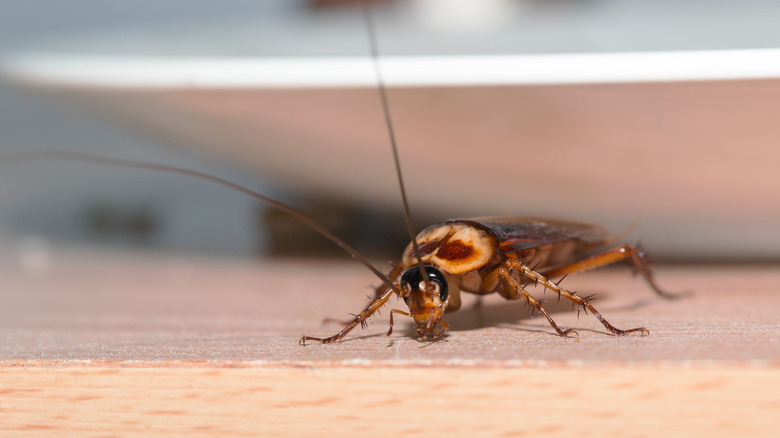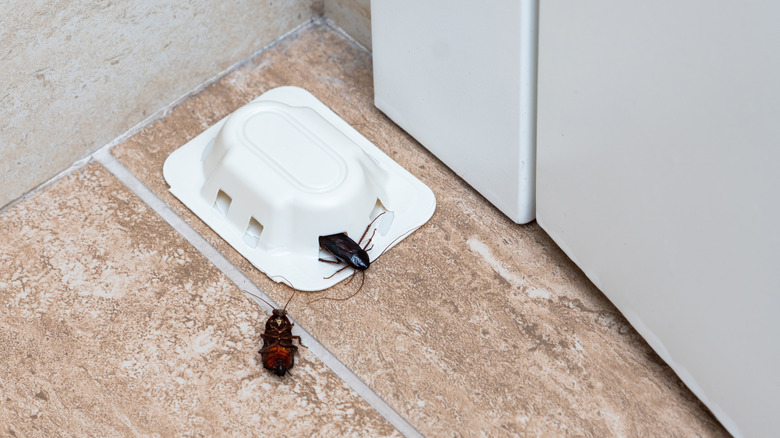The Little-Known Tip You Need To Effectively Get Rid Of Roaches For Good
Roaches are some of the most common household pests you can encounter. They are also some of the most annoying. They have a bad odor, can cause allergic reactions for certain people, and can be quite an embarrassment if they show themselves in the presence of guests. Roaches are one of the pests that do a ton of damage in your home when you take into consideration the amount of pathogens they carry around. Generally, they're bad news and need to be evicted. Unfortunately, roaches reproduce very quickly, so if you make any mistakes while exterminating them, they can easily regain their numbers. One really common mistake people make is sticking to a single insecticide or bait for too long, allowing the bugs to become resistant. But you can prevent this insecticide resistance through rotation.
So what's the story behind this mistake, anyway? When trying to get rid of unwanted roaches, you may resort to using insecticides or baits to thin out their numbers. Those methods are usually effective but lose their potency drastically when you stick with a specific one for too long. Cockroaches are hardy insects and adapt quickly, and they can quickly develop resistance to that insecticide.
This problem isn't restricted to your home. Those resistant roaches will pass on their immunity to their offspring, and soon, we may have a whole species of super-roaches on our hands. Baits are not exempt, either — after a few run-ins with a specific bait, it seems like these critters wise up and begin to avoid it. That isn't due to resistance, but it'll still affect your pest control efforts adversely, because these roaches just won't bite anymore.
The spinning wheel of cockroach control
Rotating your insecticides doesn't mean simply putting out a new product after a few days. You have to switch to a new roach killer with a different active ingredient, preferably from a different insecticide class. These classes all have specific mechanisms of killing insects. For instance, pyrethroids are neurotoxins that target the cockroach's sodium channels, causing paralysis and death. Organophosphates are also neurotoxins, but they attack an enzyme that controls their muscular system instead. The end result is death with both insecticides, but their methods are different. This means that if a cockroach population begins to resist a pyrethroid insecticide, an organophosphate one might do the trick.
For baits, the problem is that each bait won't attract all members of a cockroach population. The ones that are attracted to the bait are killed off, while the ones that hate it survive to pass that aversion to their offspring. After a while, the bait-averse roaches make up a majority of the population, reducing that product's efficacy, but another bait might still be effective. You'll find it difficult to curb a cockroach infestation with a single insecticide, but by rotating two or three of them from different classes, you could get rid of cockroaches forever.

